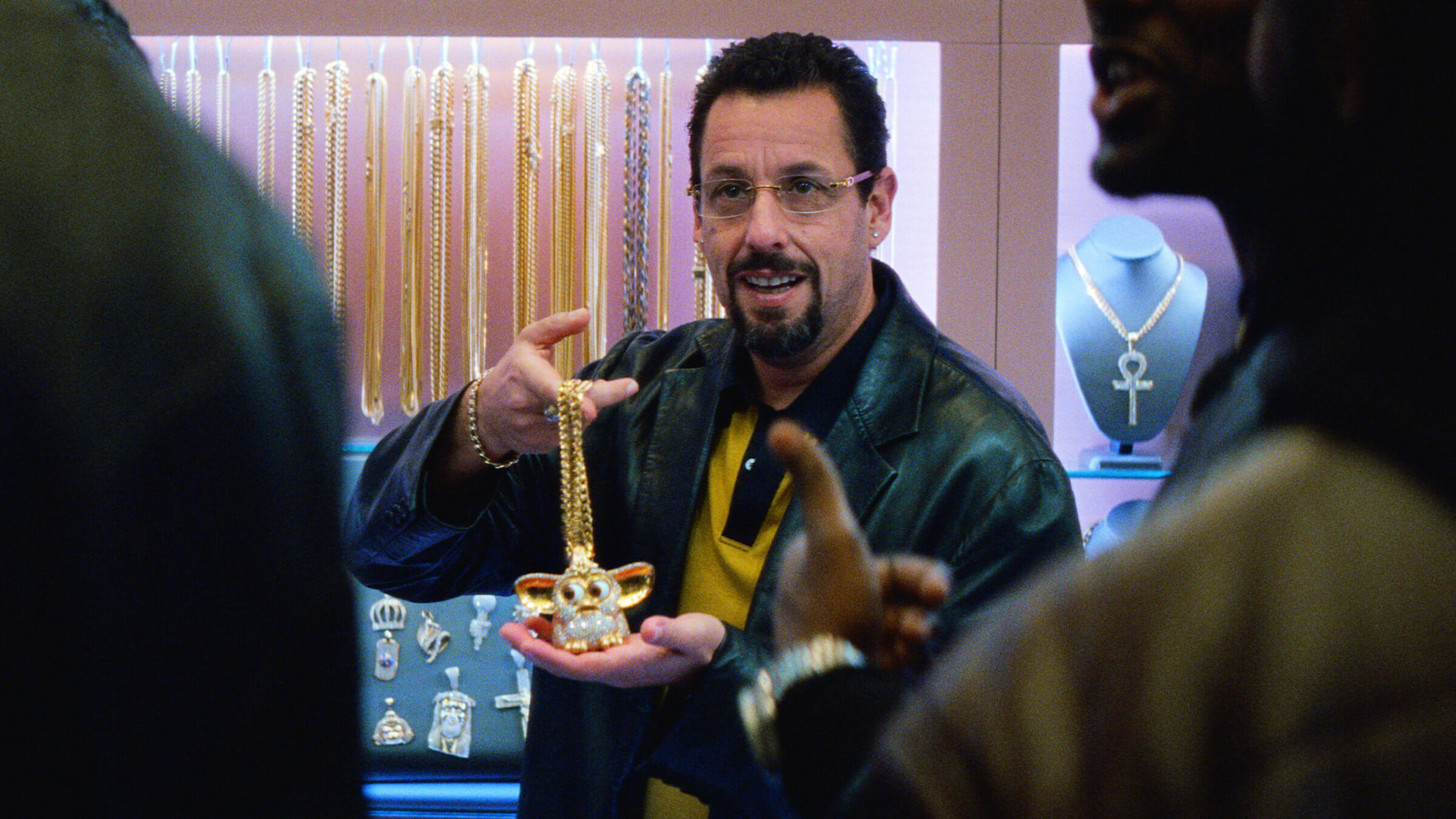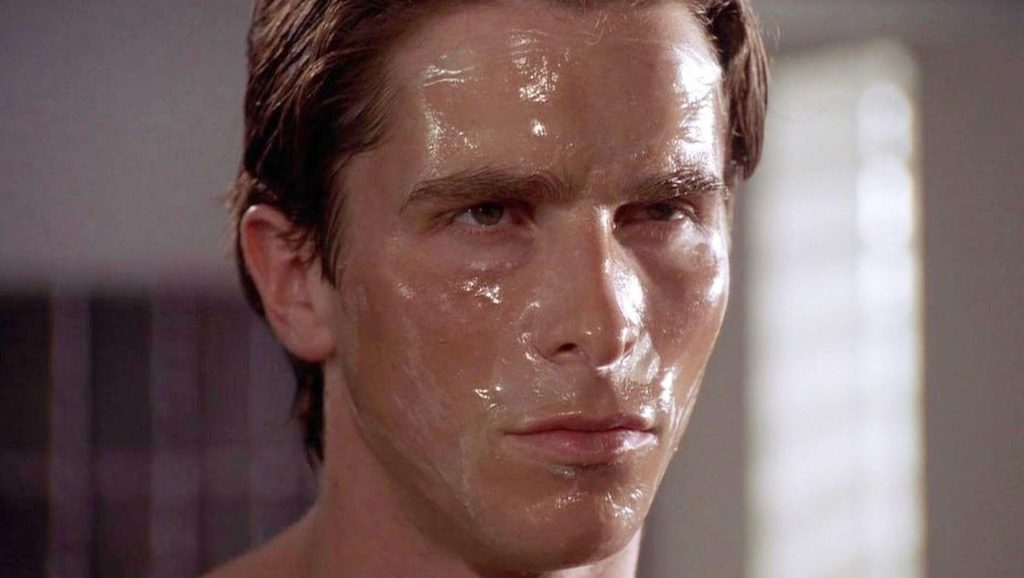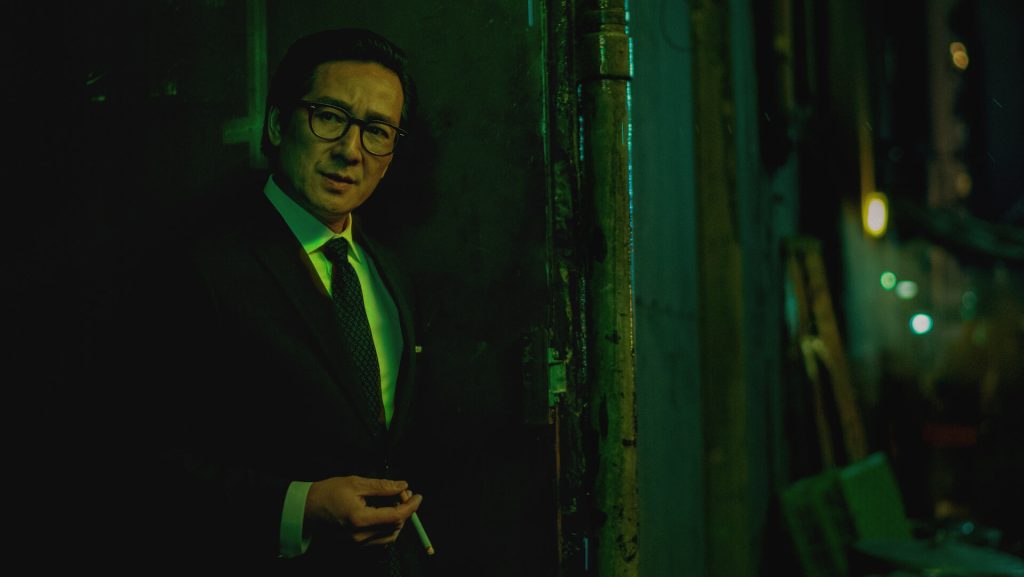By Ken Miyamoto from ScreenCraft · June 19, 2024

In screenwriting, a monologue is a powerful tool that can elevate a scene, reveal deep character insights, and create memorable cinematic moments. But what exactly is a monologue, and how can you craft one that resonates with audiences? Let’s dive in and explore the essence of a monologue, discuss tips on writing compelling monologues, and highlight some of the best monologues in cinematic history.
A monologue is a speech delivered by a character, often revealing their inner thoughts, emotions, or motivations. Unlike dialogue, which involves an exchange between two or more characters, a monologue is primarily a solo performance that can be directed at other characters, the audience, or the characters themselves.
Monologues serve a wide variety of purposes, including:
Some monologues have some back-and-forth between characters, but the character primarily owns these moments.
Read More: 15 Most Quotable Movies of All Time

‘American Psycho’ (2000)
Monologues offer actors a chance to put their acting skills on display in auditions for plays, commercials, TV shows, and movies.
While many auditions call for actors to read from the provided script for the project they are auditioning for, some casting directors, producers, and directors sometimes ask for actors to perform monologues. The monologues actors use can be from well-known plays, TV shows, and movies. However, they can also be original works written by the actors or screenwriters they may know.
Writing a great monologue requires a balance of creativity, structure, and understanding of your character. Here are some tips to help you craft a monologue that stands out:

‘Everything Everywhere All at Once’ (2022)
To illustrate the power of a well-crafted monologue, here are ten of the best monologues in cinematic history, each showcasing different aspects of what makes a monologue memorable.
Editor’s Note: Some of these monologues have back-and-forth dialogue, but there’s always a core of a monologue in each.
Screenplay by: Paddy Chayefsky
Delivered by Peter Finch as Howard Beale, this monologue captures the character’s intense frustration and disillusionment with society, resonating with audiences through its raw emotion and urgency. The monologue essentially says what we all want to say but never do. And that’s another great dynamic of powerful monologues—they offer the audience a cathartic experience to take home.
Screenplay by: Aaron Sorkin
Jack Nicholson’s portrayal of Colonel Jessup—specifically during this classic monologue—reveals the harsh realities of military life and the moral complexities of duty, making it a powerful and thought-provoking moment.
Two things are happening in this monologue. The first is the deeper reveal of the character’s skewed outlook on life and his duty. The second is his utterly relatable outlook that helps us to understand who he is and why he ordered the Code Red. It’s a cathartic moment for the audience.
Screenplay by: Matt Damon and Ben Affleck
Robin Williams’ character, Sean Maguire, delivers a deeply personal and heartfelt speech that breaks through Will’s (Matt Damon) defenses, highlighting the power of personal connection and understanding. It’s an important monologue because it helps Will understand where Sean is coming from, creating an in that Sean has been seeking.
The monologue also reveals a lot of backstory and context to the character of Sean. We empathize with his past, and learn that he lost his wife and fought in Vietnam. We understand what he’s been through, which helps his character arc throughout the rest of the story. But, again, the key thing is that it moves not just the plot forward, but also the character arcs of these profound characters.
Screenplay by: Frank Darabont
Tim Robbins (Andy Dufresne) reflects on hope and the human spirit in the face of adversity, encapsulating the film’s central themes in a memorable way. The message within the monologue is utterly cathartic for the audience, and relatable. We all know what it is like to struggle through difficult times. This monologue offers inspiring insight not just towards the character of Andy, but to the audience as well.
Full disclosure: this one isn’t a full-on monologue. Andy and Red have back and forth throughout. But we include it because this moment is Andy’s moment. Red is just interrupting his moment in hopes of making sure he doesn’t do anything rash.
Read More: 20 Biggest Plot Holes in Cinema
Screenplay by: Quentin Tarantino and Roger Avary
This iconic monologue delivered by Samuel L. Jackson’s Jules Winnfield combines intensity, menace, and a surprising depth of character, making it an iconic and unforgettable moment. Quentin Tarantino has a knack for putting powerful words together.
The first part of this monologue is intense and horrifying. It builds and builds, creating tension and anxiety for the characters in that room and for the audience watching. Then, in the end, we get an even better monologue that builds off of this moment, delivering far more depth and showcasing the final arc of Jules.
Screenplay by: Paul Thomas Anderson
Daniel Day-Lewis’s intense delivery as Daniel Plainview showcases the character’s ruthlessness and descent into madness, leaving a lasting impression on audiences. It’s a story reveal, telling us that he has had the last laugh on his arch-nemesis. But it also shows how ruthless Daniel is. And that is what you want in a great monologue—you want it to reveal character memorably.
Screenplay by: Cameron Crowe
Tom Cruise’s heartfelt plea as Jerry Maguire combines vulnerability and desperation, creating a relatable and compelling moment that resonates with the audience.
It’s a great monologue because it delves into the character of Jerry and what he is going through while dealing with a personality like Rod’s, all while hanging on to the thread that is his career.
Screenplay by: Christopher Nolan and Jonathan Nolan
Heath Ledger’s Joker delivers a chilling and enigmatic monologue that encapsulates the character’s chaotic philosophy, leaving a lasting impact through its eerie intensity. It’s a revealing monologue for an iconic character, showing us where his manic existence comes from.
Screenplay by: David Mamet
Alec Baldwin’s performance as Blake is both mesmerizing and intimidating, encapsulating the high-pressure world of sales with a raw and unfiltered intensity that leaves a lasting impression. This monologue is brutal. It shows the brutality of Blake and the sales business. Many people who have worked in sales or high-pressure corporate environments can relate to this monologue. But it’s also just fun seeing how extreme the words are being flung at these characters.
Read More: Walk the Talk: Movies Defined by Great Dialogue
Screenplay by: Great Gerwig and Noah Baumbach
America Ferrera’s character delivers a powerful and heartfelt monologue that addresses the complexities and contradictions of modern womanhood, striking a chord with audiences through its authenticity and emotional depth. Women can relate to this monologue. Men (the better of us) can empathize with women through this monologue, gaining a higher understanding of what it is like to be a woman.
—
Whether it’s revealing deep character insights, advancing the plot, or evoking strong emotions, a well-written monologue can be a powerful tool in your screenwriting arsenal.
Take the time to understand your character, set the scene, and let the words flow naturally, creating moments that will linger in the hearts and minds of your audience long after the credits roll.
Read More: Moving Monologue: The Best Movie Monologues That Leave Audiences Speechless
Ken Miyamoto has worked in the film industry for nearly two decades, most notably as a studio liaison for Sony Studios and then as a script reader and story analyst for Sony Pictures.
He has many studio meetings under his belt as a produced screenwriter, meeting with the likes of Sony, Dreamworks, Universal, Disney, Warner Brothers, as well as many production and management companies. He has had a previous development deal with Lionsgate, as well as multiple writing assignments, including the produced miniseries Blackout, starring Anne Heche, Sean Patrick Flanery, Billy Zane, James Brolin, Haylie Duff, Brian Bloom, Eric La Salle, and Bruce Boxleitner, the feature thriller Hunter’s Creed, and many Lifetime thrillers. Follow Ken on Twitter @KenMovies and Instagram @KenMovies76